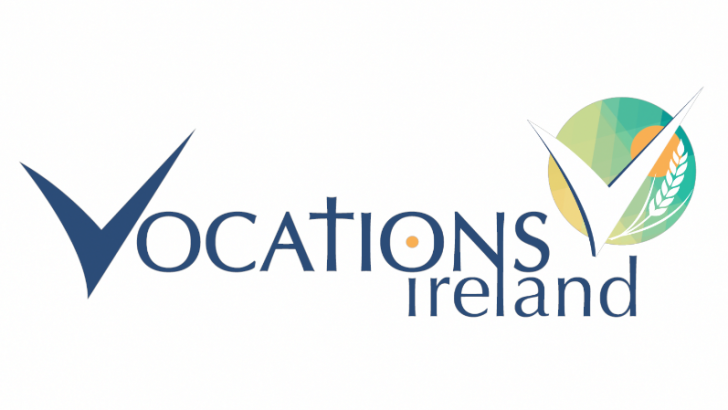Mags Gargan talks to the director of Vocations Ireland about plans for the future
Margaret Cart-wright is just over a year in her new job as director of Vocations Ireland – an umbrella group that supports the vocations directors from all the different religious congregations and societies in Ireland.
She says that first year was mainly spent listening and getting a sense of where the organisation was and where it wanted to be. Now she is ready for action and has already kicked off the year with a bang thanks to the announcement this month of a generous grant of $290,000 (€268,000) by the Conrad N. Hilton Foundation.
Originally from Glasgow, with Irish grandparents on her mother’s side, Margaret married a Dublin man and has been living in Ireland for many years. They have three adult daughters.
Margaret was working as a clerk in the BBC in Glasgow when she decided she wanted to go on the missions and joined the Franciscan Missionaries of Mary. She spent 10 years working with people with disabilities in Papua New Guinea.
Community
“It was a very tough mission, a tough climate. I got malaria and Dengue fever. But I loved it,” she says. Working with an Indian doctor, she set up homes for paraplegics and quadriplegics to transition them out of the hospital and back into their community.
“Some had been in hospital for seven, eight or nine years simply because there was nowhere else for them to go. In Papua New Guinea, for people to go back to their own tribe they had to have something they could give back. They couldn’t go back to the community and do nothing,” she explains.
“So we fundraised and built 12 homes. Then we met with the village elders to see what could they train to do. Some got trained in repairing sewing machines for the women’s group, another was working with the local press – he used a fitting for his head to type – another was trained in copper beating and he used to sell things on the market and bring money back to the village. That got them accepted back in the village and eventually they would move back.”
She describes the Franciscan Missionaries of Mary as “a wonderful group to be with” and says that she owes them a lot, but in the end Margaret decided that religious life “was not for me” and she returned home in the 1980s and worked in the BBC again for a few years. After coming to Dublin to explore nursing as a new career, she met Sean and decided to get married.
A few years of study in All Hallows followed which led to her working on the lay ministry course there before completing a Masters at the Milltown Institute and becoming Director of Pastoral Care in Mount Carmel Hospital for about 10 years. “I loved it but when you work with a lot of bereavement you need to take a break from it so I moved to L’Arche for three years,” she says.
It was while she was taking some time out of her career following a house move and her daughter’s wedding, that she came across the advertisement for the role of director of Vocations Ireland and was “intrigued”.
She began her new job in November 2014 and says she “wasn’t sure what to expect”.
“I was very conscious of the fact that religious life had taken a lot of knocks over the years and I had noticed that religious were not really speaking out. They seemed to be withdrawn and I thought that was a great pity because there are so many men and women in religious life with fantastic stories to tell and who are doing tremendous job, and we are not hearing about that.
“I thought this is maybe something that I could do, to get the stories known and to help religious to find new ways of making connections with young people. I felt we lost the art of storytelling.”
One of the first things Margaret looked at was financial backing and she says the organisation was lucky to get the grant from Conrad Hilton. Now in the year ahead the focus will be on upskilling the vocations directors, along with some interesting new projects.
“At the moment we are looking at starting up a new venture called Sisters Café, to encourage young women to come and meet religious sisters to hear their stories, have a tea or coffee and mingle for a chat, and then have a question and answer session,” she says.
“We are also hoping to set up Samuel groups. They were started by Cardinal Martini in the 1980s to help young people to discern where to go – it could be a college course, or whether they should get married or join religious life. They are run over six weeks and there is a sense of community.”
Margaret says there has been a slow but steady increase in interest in vocations and estimates that there are at least 76 people in formation in the country.
“It is very mixed, both contemplative and active,” she says. “Certainly there has been a draw to the contemplative life around the 35 age group. That has been mainly women and the few I have chatted to have said ‘I finished my degree and worked as a professional, but I felt I needed something more’ and that’s what they were drawn to. Others are looking at the more active role in ministry and wanted to focus in on a particular aspect such as health, education or climate justice. That is an interesting one now because when you go into the schools to give a talk the questions young people are interested in are on justice issues, climate change and what the Church is doing about it.”
She says that “religious life is changing and has to change”. “We have to change our portrayal of religious life. We have to meet the needs of young people today.”
This is a challenge, Margaret says, but she is “hopeful and quite excited”. “I think Pope Francis has done a lot to develop positivity and we need to build on that.”


 Mags Gargan
Mags Gargan
